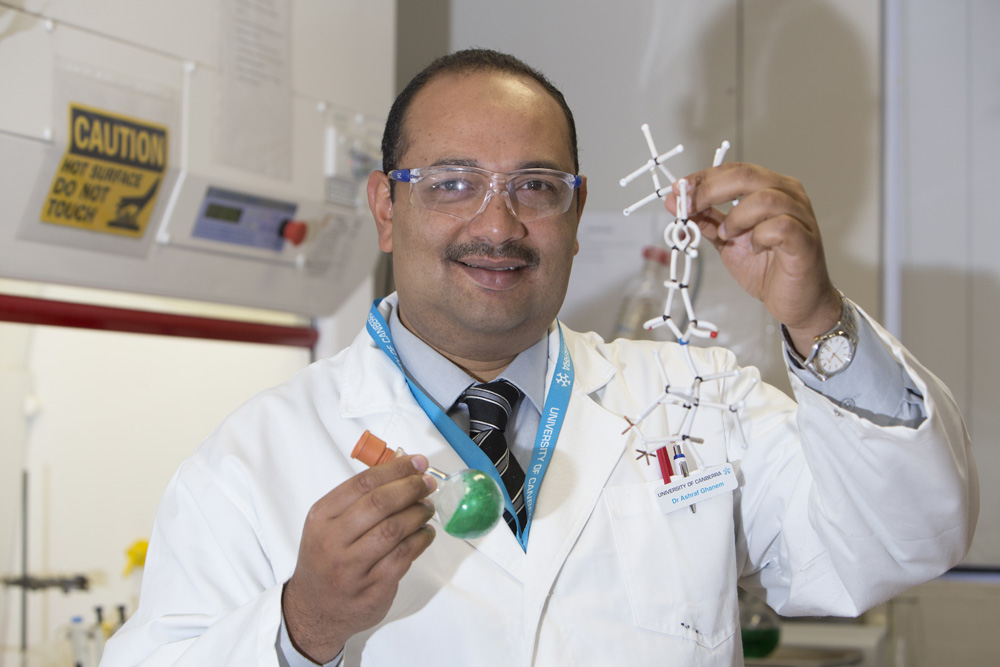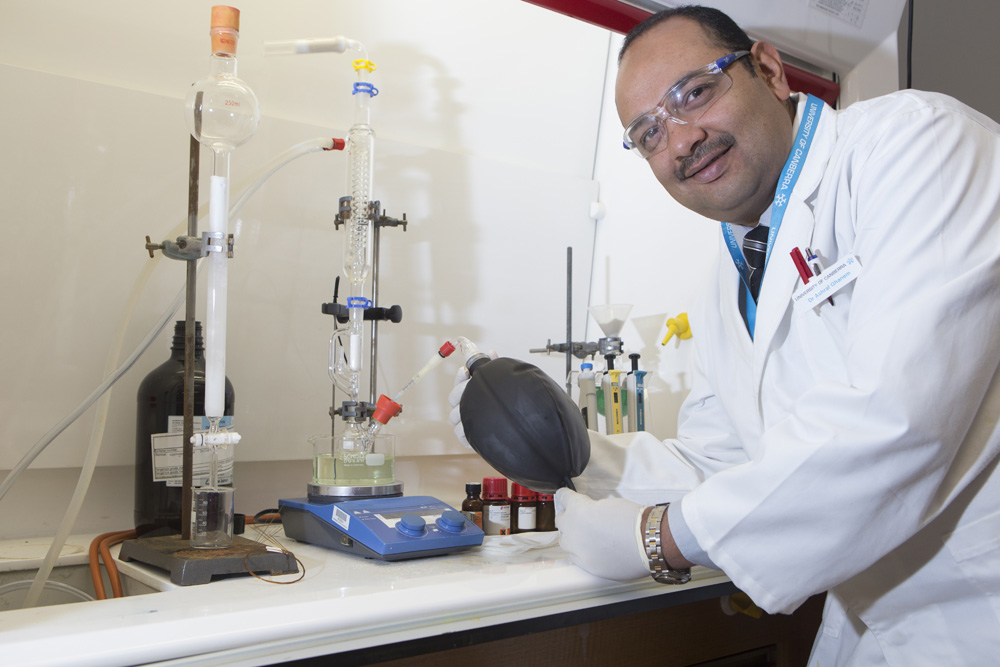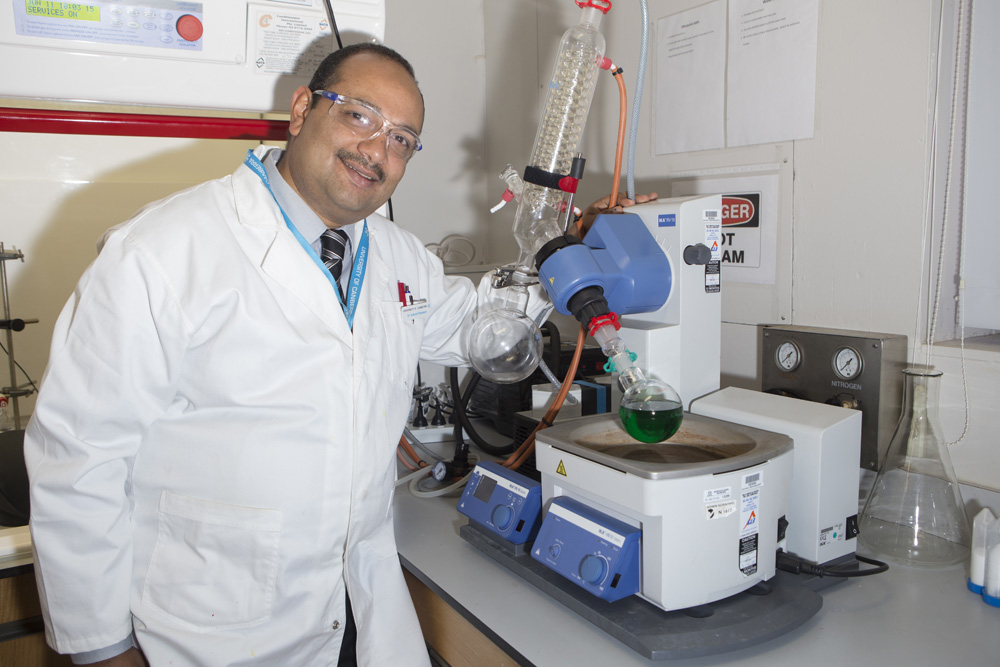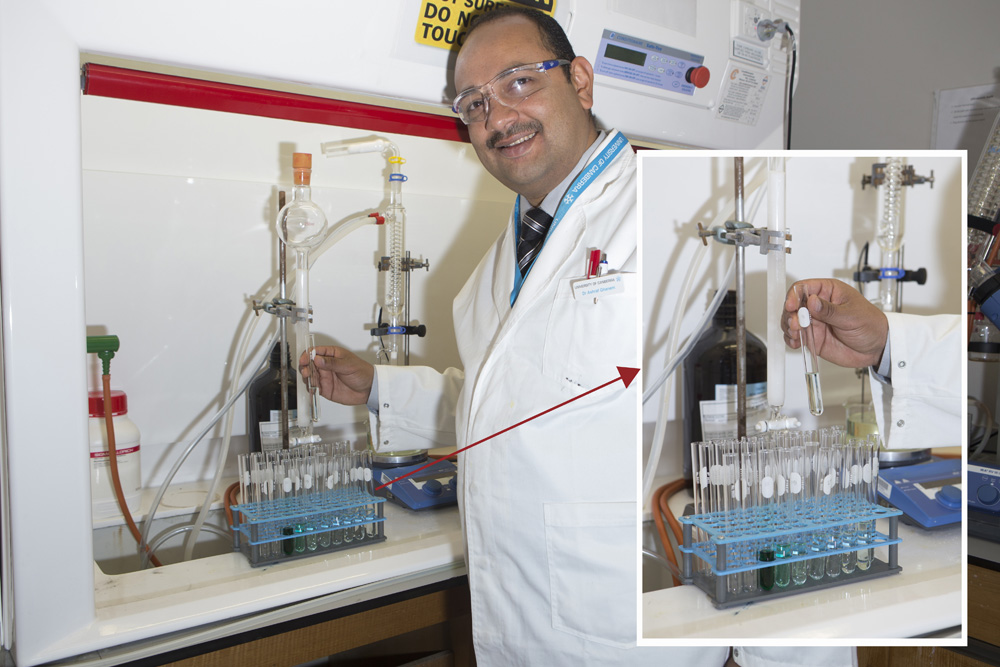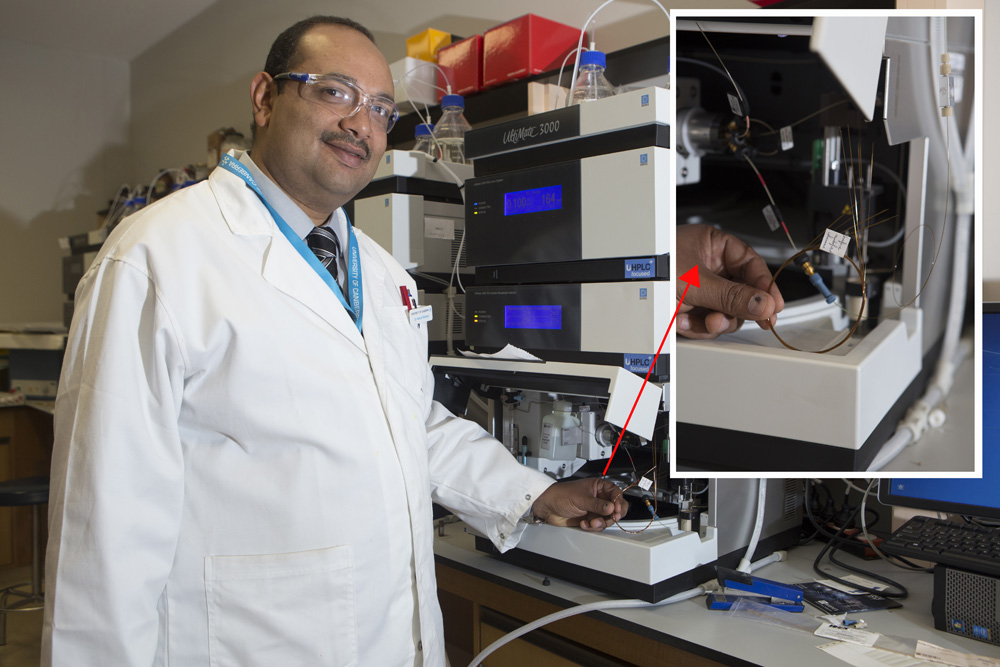10 June 2015: In a University of Canberra first, an international chemical manufacturer has signed a commercialisation agreement to market a new synthetic catalyst developed by a University researcher that will help make the pharmaceutical manufacturing process more efficient.
The deal signed with US chemical company Strem Chemicals Inc. is the University of Canberra's first intellectual property licence for a chemical product that will be sold worldwide.
The catalyst, discovered by associate professor of biomedical sciences Ashraf Ghanem, will be useful in pharmaceutical processing, particularly in the production of the drug Ritalin (methylphenidate), which is used in the treatment of attention deficit disorder and attention deficit hyperactive disorder.
Dr Ghanem explained that this synthetic catalyst produces a chemical reaction that allows certain molecules to be extracted with a very high level of purity, reducing the need for additional processing and diminishing the risk of unintended side effects.
"This is important because it can help produce more effective pharmaceuticals quickly, at a reduced cost and hopefully in the future that means people are paying less for the medication they need," he said.
Dr Ghanem said the path to commercialising his discovery has been hard work, but rewarding now that his research is delivering a beneficial outcome to the pharmaceutical field, with great flow-on effects for those depending on their medication.
"This commercialisation deal shows that we are achieving great results in our field and that our work is offering a solution that can improve the pharmaceutical industry's access to more pure drugs," he said.
"I feel that this is what my research is meant to be doing, taking the theory from the bench to a product in the marketplace," Dr Ghanem said.
Strem Chemical's Chief Operating Officer Dr Ephraim S. Honig said the company is pleased to be adding the catalyst to their product range.
"This will be a tool for drug discovery and process development scientists to use in their efforts to bring new pharmaceuticals to market and make them, or generic drugs, more efficiently," Dr Honig said.
University of Canberra Deputy Vice-Chancellor (Research), Professor Frances Shannon said she is proud of the work being done at the University.
"This intellectual property deal may be the first for a chemical product at the University of Canberra, but it won't be the last," Professor Shannon said.
"Through research commercialisation opportunities, such as this one, we are ensuring the University of Canberra is well and truly on the map for delivering research with impact."



